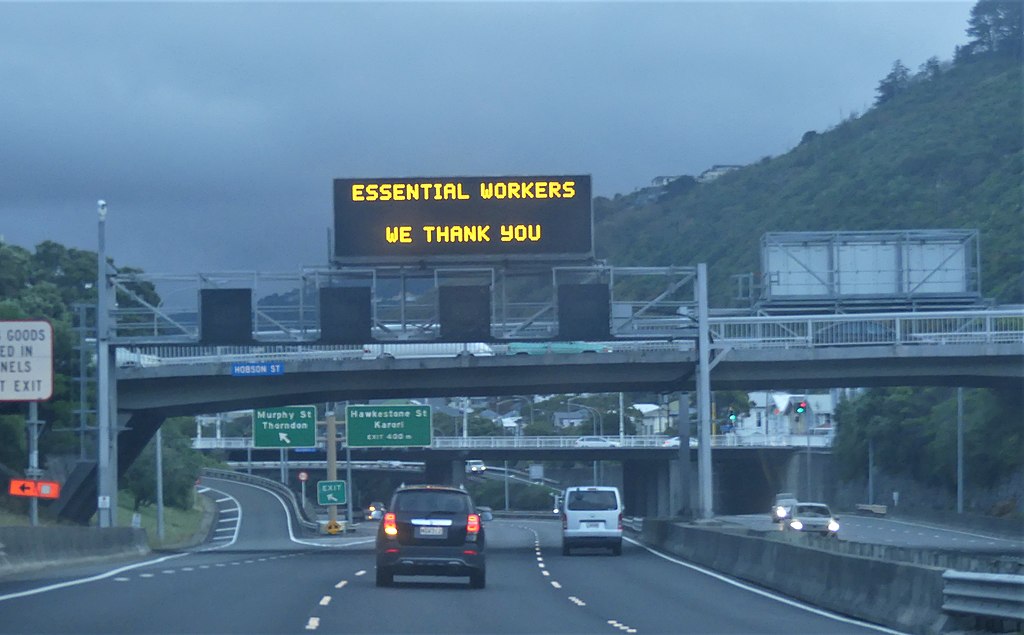Labour’s decision to run Greg O’Connor against Peter Dunne in Ōhāriu tells us much about the party’s strategy. And the news is not good. O’Connor is a hardened reactionary, a veteran of decades at the head of the Police Association. In this role he was the public face of the police, and used his considerable skills to argue for the most reactionary anti-democratic demands. One of the successes of his career has been pushing the whole public discourse around law and order and crime significantly to the Right.
The Police Association, under O’Connor’s leadership, managed in the 2000s, with the misnamed Sensible Sentencing Trust and Family First, to manufacture and stoke public panics about crime in order to prepare public sympathy for granting the state further powers to harass, detain and, sometimes, kill. His record is entirely anti-democratic.
So why is Labour running him? Columnist Chris Trotter claims that for ‘working class people… the idea of having the former boss of the Police Association in Parliament is likely to sound pretty good.’ Bryce Edwards in the National Business Review argues that Andrew Little recruited O’Connor as part of a strategy of ‘broadening the ideological nature of the Labour Party’ away from its ‘PC liberal image’.
To put these claims in context, consider some of O’Connor’s long-held positions.
Arming the police: in 2014 O’Connor argued in the New Zealand Herald that it was ‘time to get real and arm the police’. ‘Overcome our squeamishness and arm the police’, he insisted. Considering the already disproportionate attention Māori and working-class youth receive from police – more likely to be arrested, more likely to be charged – this policy, if adopted, would inevitably lead to further deaths of brown and poor people at police hands.
Indeed, in 2000 Senior Constable Keith Abbott shot and killed Waitara man Steven Wallace. Wallace was just 23 years old. In a search for justice, his whānau brought a private prosecution against Abbott. O’Connor dismissed actions such as this as the tools of ‘vexatious litigants’ and pushed to limit citizens’ access to private prosecutions.
In 2006 four cops beat and peper-sprayed Rawiri Falwasser 65 times in a Whakatane cell. When, years later, the cops’ actions were condemned by the Independent Police Conduct Authority O’Connor justified them as officers acting ‘as they thought best’. O’Connor never found police conduct he couldn’t stomach and, when a 2007 report detailed systemic problems to do with the handling of sexual violence complaints by police, he dismissed it as a ‘ritual humiliation’. When, in 2012, a court threw out a case based around lies and deceptions – to the court itself! – from an undercover cop, O’Connor claimed the public were the losers. Just a day after a fatal shooting Paeroa last year O’Connor had rushed out a press statement attacking ‘armchair critics’ who might question police violence and insisting that the police shooters ‘deserved the support of the public’.
Subsequent to his move to Labour politics O’Connor recently has tried to weasle out of these positions by claiming that he was just representing his members’ views. All we say is, he was representing them effectively indeed. What should we expect form someone with this view of ‘just following orders’ once they are in Parliament and under a party whip?
It would be a step forward in this country if there were a party of labour fighting for all working people, on everything from defending superannuation to pushing for affordable, quality state housing to getting equal pay for women. These class demands could unite workers of different generations, ethnicities, sexualities and backgrounds.
But when commentators talk about Labour as a ‘broad church’ or position ‘identity politics’ against what is allegedly class politics, they’re betraying their own right-wing assumptions. Under Little’s leadership, Labour has flinched from the (even then half-hearted) turn to the left attempted under Cunliffe. There’s nothing of substance coming out of the Party on economic issues that matter, and there’s no programme offered for working people. Instead, we’re getting a fantasy identity politics of another kind, when cultural gestures like O’Connor’s selection (and Willie Jackson’s) are supposed to win back ‘white’ male workers.
What O’Connor’s past offers, however, is a solid programme of anti-worker and anti-democratic law and order demagogy. Recruiting him as a candidate is not, as Bryce Edwards suggests, ‘broadening the ideological nature of the Labour Party’. It is pushing that nature further to the right.









